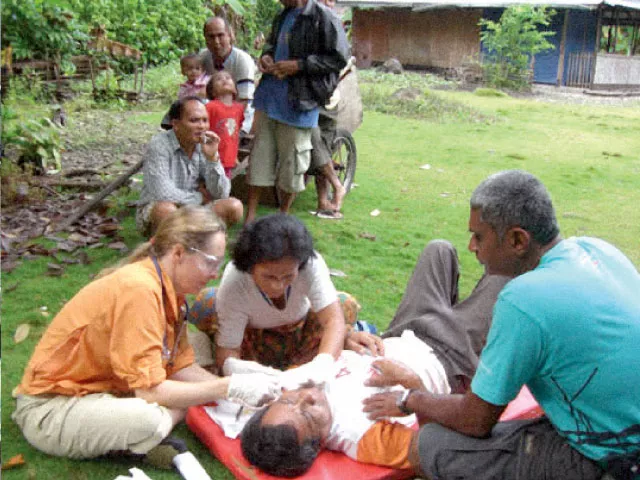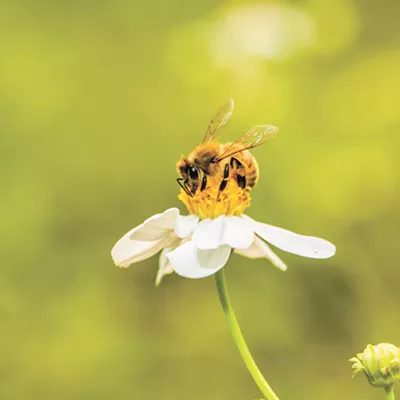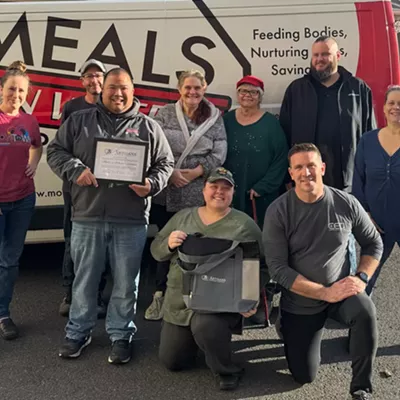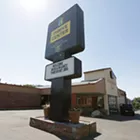The clinic is packed with onlookers. Doctor-patient confidentiality, HPPA regulations, privacy — these don’t exist in the small Indonesian village of Ujung Sialit.
“Nothing happens in a private room,” says Dr. Alisa Hideg. “The hardest part is keeping the kids away from the windows.”
Hideg, a family doctor from Spokane, is a jack of all trades — just the kind of doctor the small clinic needs. She can help deliver babies, she can perform surgeries, she can diagnose maladies and give medication. But on this particular day, she was attempting to teach a woman how to open a Tylenol bottle.
Even for us in America, where we speak English and have our whole life to learn how to “Press down and twist,” opening a Tylenol bottle can be hard enough. But while Hideg has learned to speak some manner of Indonesian, her efforts to explain how to open the Tylenol bottle were in vain.
Finally, she gives up and dumps the Tylenol in a bag.
The crowd cheered.
After Hurricane Mitch tore through El Salvador, Alisa Hideg and her husband, George, an architect, flew in to the country to help. She helped hundreds of patients, while George surveyed the damage and helped to rebuild homes.
But the quick in-and-out left Hideg unsatisfied.
“It’s easy to do a work vacation, where you go in and you see 100 people and leave,” Hideg says. “It’s painful when you come home and you feel like that’s all that’s happened.”
When the tsunami hit the shores of Indonesia, Hideg wanted to do more than make a foreign house call.
She wanted to find a way she could make a lasting impact. She joined an organization called the Local Empowerment Assistance Project, Indonesia — LEAP IN, for short.
On one Indonesian island, LEAP IN created a fiberglass canoe factory. The strategy was a lot like Habitat for Humanity’s: Teach one villager to build a canoe, but also require the villager to teach another person build a canoe. Pretty soon, they had a factory going.
“The whole project has been turned over to the people on the island. They own that factory now,” Hideg says. “What they’ve done is to make something that lasts.”
At another village, LEAP IN created a coconut oil plant. They’ve taught villagers to build wells, to compost, to garden. Using a donated boat, LEAP IN drives from island village to island village.
When she was a family doctor in Alaska, Hideg dealt with frostbites, hypothermia and snowmobile accidents. The Indonesian climate brought different challenges: parasites, malaria and nutritional deficiency.
Hideg shows a picture of a woman with a massive growth on her neck. It’s straining the woman’s windpipe. She struggles to breathe. The hyper-enlarged thyroid, also known as a goiter, is virtually unheard of in the United States but is relatively common in the Indonesian villages, due to the lack of iodine in the diet.
Much of Hideg’s life has seemed to prepare her to eventually help a place like Indonesia. She’s been a combat medic in the Army, which taught her how to improvise with materials on hand. In Kodiak, Alaska, she learned a lot about just sitting and listening.
El Salvador and Indonesia weren’t the first foreign countries the Hidegs aided. They’ve helped people in England, Australia, Yugoslavia and Chile.
“Sometimes you come home and it’s hard to talk to people about it or tell the stories. Because I never want to feel like people can’t relate to me because I’ve gone and done these things that are exotic,” Hideg says. “People look at all of us who do this as being special or different.”
They’re just responding to a need, Hideg contends. She encourages people to make an impact locally. Shovel your neighbor’s driveway, she says. Volunteer at your community center.
Making a difference, she says, does not require a passport.





















